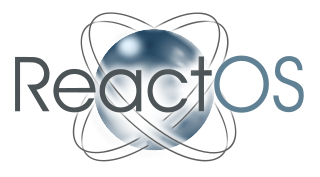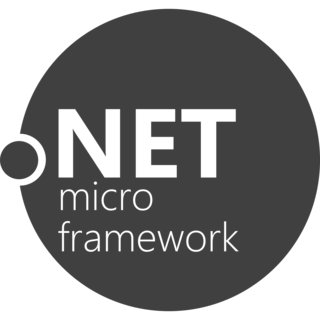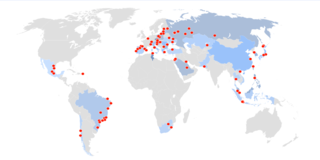Borland Software Corporation was a computer technology company founded in 1983 by Niels Jensen, Ole Henriksen, Mogens Glad and Philippe Kahn. Its main business was the development and sale of software development and software deployment products. Borland was first headquartered in Scotts Valley, California, then in Cupertino, California, and then in Austin, Texas. In 2009 the company became a full subsidiary of the British firm Micro Focus International plc.

Internet Explorer is a deprecated series of graphical web browsers developed by Microsoft that were used in the Windows line of operating systems. While IE has been retired on most Windows editions, it remains supported on certain editions of Windows, such as Windows 10 LTSB/LTSC. Starting in 1995, it was first released as part of the add-on package Plus! for Windows 95 that year. Later versions were available as free downloads or in-service packs and included in the original equipment manufacturer (OEM) service releases of Windows 95 and later versions of Windows. Microsoft spent over US$100 million per year on Internet Explorer in the late 1990s, with over 1,000 people involved in the project by 1999. New feature development for the browser was discontinued in 2016 in favor of its successor, Microsoft Edge.
SoftICE is a kernel mode debugger for DOS and Windows up to Windows XP. It is designed to run underneath Windows, so that the operating system is unaware of its presence. Unlike an application debugger, SoftICE is capable of suspending all operations in Windows when instructed. Because of its low-level capabilities, SoftICE is also popular as a software cracking tool.
Microsoft Developer Network (MSDN) was the division of Microsoft responsible for managing the firm's relationship with developers and testers, such as hardware developers interested in the operating system (OS), and software developers developing on the various OS platforms or using the API or scripting languages of Microsoft's applications. The relationship management is situated in assorted media: web sites, newsletters, developer conferences, trade media, blogs and DVD distribution.

Revolution OS is a 2001 documentary film that traces the twenty-year history of GNU, Linux, open source, and the free software movement.

ReactOS is a free and open-source operating system for amd64/i686 personal computers intended to be binary-compatible with computer programs and device drivers made for Windows Server 2003 and later versions of Windows. ReactOS has been noted as a potential open-source drop-in replacement for Windows and for its information on undocumented Windows APIs.

Clam AntiVirus (ClamAV) is a free software, cross-platform antimalware toolkit able to detect many types of malware, including viruses. It was developed for Unix and has third party versions available for AIX, BSD, HP-UX, Linux, macOS, OpenVMS, OSF (Tru64) and Solaris. As of version 0.97.5, ClamAV builds and runs on Microsoft Windows. Both ClamAV and its updates are made available free of charge. One of its main uses is on mail servers as a server-side email virus scanner.

Spider is a type of patience game, and is one of the more popular two-deck solitaire games. The game originates in 1949, and its name comes from a spider's eight legs, referencing the eight foundation piles that must be filled to win the game.
An independent software vendor (ISV), also known as a software publisher, is an organization specializing in making and selling software, as opposed to computer hardware, designed for mass or niche markets. This is in contrast to in-house software, which is developed by the organization that will use it, or custom software, which is designed or adapted for a single, specific third party. Although ISV-provided software is consumed by end users, it remains the property of the vendor.

Vicious Cycle Software was an American video game development company based in Morrisville, North Carolina.
A micro ISV, a term coined by Eric Sink, is an independent software vendor with fewer than 10 or even just one software developer. In such an environment the company owner develops software, manages sales and does public relations.
Ludvig "Ludde" Strigeus is a Swedish programmer, best known for developing software such as the BitTorrent client μTorrent, OpenTTD, and Spotify.
The Portland Project is an initiative by freedesktop.org aiming at easing the portability of application software between desktop environments and kernels by designing cross-platform APIs and offering implementations thereof as libraries to independent software vendors (ISVs).

The .NET Micro Framework (NETMF) is a .NET Framework platform for resource-constrained devices with at least 512 kB of flash and 256 kB of random-access memory (RAM). It includes a small version of the .NET Common Language Runtime (CLR) and supports development in C#, Visual Basic .NET, and debugging using Microsoft Visual Studio. NETMF features a subset of the .NET base class libraries, an implementation of Windows Communication Foundation (WCF), a GUI framework loosely based on Windows Presentation Foundation (WPF), and a Web Services stack based on Simple Object Access Protocol (SOAP) and Web Services Description Language (WSDL). NETMF also features added libraries specific to embedded applications. It is free and open-source software released under Apache License 2.0.
Panorama Software is a Canadian software and consulting company specializing in business intelligence. The company was founded by Rony Ross in Israel in 1993; it relocated its headquarters to Toronto, Canada in 2003. Panorama sold its online analytical processing (OLAP) technology to Microsoft in 1996, which was built into Microsoft OLAP Services and later SQL Server Analysis Services, an integrated component of Microsoft SQL Server.
HCL Connections is a Web 2.0 enterprise social software application developed originally by IBM and acquired by HCL Technologies in July 2019. Connections is an enterprise-collaboration platform which helps teams work more efficiently. Connections is part of HCL collaboration suite which also includes Notes / Domino, Sametime, Portal and Connections.
Visual Studio Tools for Applications (VSTA) is a set of tools that independent software vendors (ISVs) can use to build customization abilities into their applications for both automation and extensibility. Those customization abilities can be used by end-users to tailor the ISV's application within a managed extensibility environment just like Visual Basic for Applications.

Microsoft Entertainment Pack, also known as Windows Entertainment Pack or simply WEP, is a collection of 16-bit casual computer games for Windows. There were four Entertainment Packs released between 1990 and 1992. These games were somewhat unusual for the time, in that they would not run under MS-DOS. In 1994, a compilation of the previous four Entertainment Packs were released called The Best of Microsoft Entertainment Pack. A Game Boy Color version was released in 2000.

Microsoft Innovation Centers (MICs) are local government organizations, universities, industry organizations, or software or hardware vendors who partner with Microsoft with a common goal to foster the growth of local software economies. These are state of the art technology facilities which are open to students, developers, IT professionals, entrepreneurs, startups and academic researchers. While each Center tunes its programs to local needs, they all provide similar content and services designed to accelerate technology advances and stimulate local software economies through skills and professional training, industry partnerships and innovation. As of 10 September 2010, there are 115 Microsoft Innovation Centers worldwide, most of which are open to the public. Recently it was reported that Microsoft had proposed to build about 100 innovation centers in India, and several in China. Some innovation centers have also started to develop in Pakistan.
Microsoft Detours is an open source library for intercepting, monitoring and instrumenting binary functions on Microsoft Windows. It is developed by Microsoft and is most commonly used to intercept Win32 API calls within Windows applications. Detours makes it possible to add debugging instrumentation and to attach arbitrary DLLs to any existing Win32 binary. Detours does not require other software frameworks as a dependency and works on ARM, x86, x64, and IA-64 systems. The interception code is applied dynamically at execution time.








